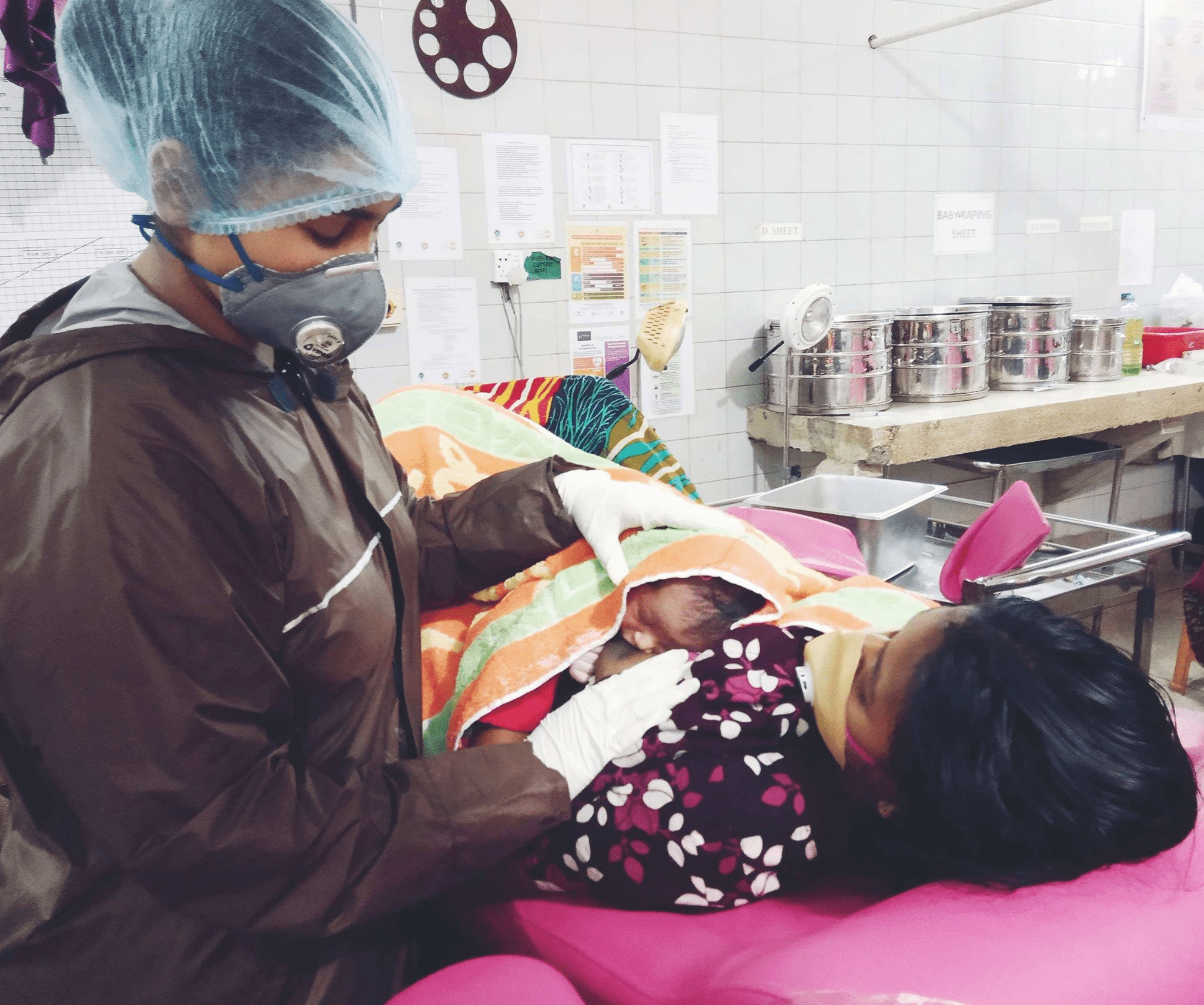This piece was originally published by the World Economic Forum on the International Day of the Midwife, 5 May 2020
When COVID-19 hit Iran, midwife Niloufar Ghassemi’s job became even more challenging. Many pregnant women were stressed about the threat of contracting the novel coronavirus. Niloufar and her colleagues nationwide were worried too, with personal protective equipment (PPE) beginning to run out, putting midwives at risk as they supported some 30,000 births and attended 59 million prenatal and reproductive health visits each month. Yet they forged ahead selflessly, ensuring safe childbirth and providing the emotional support expecting women and new mothers needed.
Midwife Selina Akter in Madaripur, Bangladesh can empathize. Her district was one of the first to be affected by the pandemic, with a lockdown imposed. Anxiety among her team was high when Jabeda, 38 weeks pregnant, arrived at Selina’s birthing facility. Wearing the makeshift gear available at the time, Selina helped Jabeda deliver a healthy girl. Despite the pandemic, the midwife made the experience as normal as possible for Jabeda and her baby by helping them have skin-to-skin contact, gently assisting as the new mother breastfed for the first time.
Niloufar and Selina are just two of the 2 million midwives globally whose profession is a cornerstone of sexual and reproductive health, yet one still to be given the respect and investment it deserves in much of Asia and the Pacific, and indeed around the world.
In the general hierarchy of healthcare specialization, with surgery and other medical practices at the top of the list, midwifery is afforded even less recognition than nursing. Both these professions are populated mainly by women, a factor that contributes to a lack of status linked to gender bias and inequality even in the realm of public health.
Furthermore, at this time of crisis, there are clear indications that midwifery – and its impact – are actually being compromised, with potentially dangerous outcomes for women who need this support, as well as for midwives themselves.
Midwives and skilled birth attendants are often being made to provide a range of other healthcare services in the context of COVID-19, rather than focus on the critical support pregnant women and new mothers need in a region where about 60 million babies are expected to be born this year.
There are also accounts of midwives having to work without PPE, or being forced to use poor substitutes, as regular PPE is diverted to other healthcare workers deemed more “essential” to the pandemic response. This is simply not acceptable.
Governments and health authorities must realize that deploying midwives away from providing maternity care at this time is likely to increase poor maternal and newborn outcomes. Health authorities must also guarantee midwives’ protection 24/7. Many have already been infected with the coronavirus, and some have already succumbed to COVID-19.
Ensuring that midwives can fulfil their mandate with appropriate safeguards during COVID-19 is tied to a genuine realization of the value their profession adds to universal health care globally. It’s a little-known fact that a well-trained midwife can actually provide almost 90% of the health and medical support and services pregnant women and new mothers and their babies need, along with serving as advocates on other women’s health and rights issues.
Ultimately, ending maternal mortality simply will not happen without optimal investments in midwifery. Globally, some 300,000 women die each year of preventable causes linked to pregnancy and childbirth, some 80,000 of them in Asia-Pacific alone.
A UNFPA-commissioned study has clearly shown that to achieve zero preventable maternal deaths by 2030 – a key target of the Sustainable Development Goals – an investment of $115.5 billion in health systems and health workers, including well-trained midwives, is required over the next 10 years in 120 priority countries globally. Almost 40% of this, about $43 billion, is needed in the Asia-Pacific region alone.
This cost is significant, and exceeds current government commitments and official development assistance from donor countries and other funders. But when we break it down further, the per capita equivalent is only $1.70 per year per person.
And, of course, a single life is in itself priceless.
Ultimately, strengthened midwifery is connected to recognizing and respecting the human rights for all women, including the achievement of optimal sexual and reproductive health and reproductive rights at the heart of the landmark 1994 ICPD Programme of Action.
Let’s honour midwives by investing in them today – to achieve a healthier, more equitable post-COVID world of tomorrow.
UNFPA, the UN's sexual and reproductive health agency, works in over 150 other countries globally to achieve zero maternal deaths, zero unmet need for family planning, and zero gender-based violence and other harmful practices against women and girls - a vision enshrined in the Programme of Action stemming from the landmark 1994 International Conference on Population and Development (ICPD).
To support our lifesaving work amid the COVID-19 pandemic, including safeguarding pregnant women and new mothers, as well as the midwives who support them, visit https://donate.unfpa.org/th-en/covid-19


